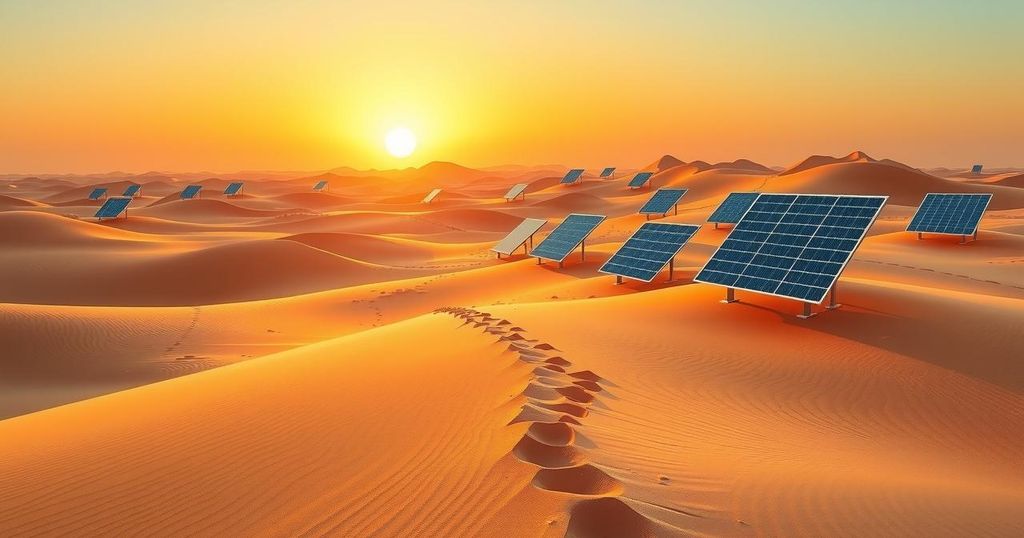The African Development Bank Group and Eritrea have signed a $19.5 million agreement to fund the Desert to Power Eritrea 12 MW Mini Grid Project. This initiative aims to create mini-grids in Teseney, Kerekebet, and Barentu, enhancing energy access for over 235,000 residents. The project aligns with sustainable development goals and includes training for local companies to ensure long-term sustainability.
The African Development Bank Group, alongside the government of Eritrea, has initiated a transformative effort to upgrade the nation’s energy infrastructure. A significant agreement was formalized on March 10, 2025, enabling funding for the Desert to Power Eritrea 12 MW Mini Grid Project, which represents a pivotal advancement in sustainable energy development within the region.
Valued at $19.5 million, this agreement is funded through the Bank Group’s Transitional Support Facility (TSF). The project will establish mini-grids capable of generating 12 MW of electricity across three vital areas: Teseney (6 MW), Kerekebet (3 MW), and Barentu (3 MW). This initiative is projected to enhance energy accessibility for over 235,000 Eritrean residents, including 20% of women and youth.
The project’s implementation will be overseen by the Eritrean Ministry of Energy, in collaboration with the Eritrea Electricity Corporation (EEC) and local firms, supported by a technical consulting agency. The initiative is designed to benefit residential sectors, small farms, agro-processing areas, and water supply systems, while also supporting more than 160 schools and 90 health centers in the Gash Barka region.
To foster sustainability and enhance local capabilities, 25 local businesses will receive specialized training and equipment. This strategy not only promotes local economic advancement but also ensures the long-term maintenance and viability of the energy infrastructure.
This project is in line with the African Development Bank’s Interim Country Strategy Paper 2022-2024 for Eritrea. It prioritizes sustainable infrastructure development to bolster agricultural value chains and facilitate economic diversification, complementing the 2018 Eritrea National Energy Policy, which aims to elevate electrification rates and ensure that renewable energy contributes 20% of electricity supply by 2030.
Eritrea has faced historical socioeconomic challenges due to conflict and economic instability. Nevertheless, recent peace agreements and enhanced regional cooperation present new prospects for development and stability. The Desert to Power initiative serves as a pivotal chance to address infrastructure shortcomings and catalyze economic transformation.
The Desert to Power Eritrea 12 MW Mini Grid Project transcends conventional energy initiatives; it symbolizes a beacon of hope for sustainable development and economic resilience within Eritrea. By leveraging renewable energy sources, the project not only meets urgent energy demands but also establishes a foundation for a more diverse and robust economy.
In summary, the Desert to Power Eritrea 12 MW Mini Grid Project signifies a crucial step in enhancing the energy infrastructure of Eritrea. Funded by the African Development Bank Group, the initiative promises to increase electricity access for a significant number of residents while building local capacities. It is strategically aligned with national policies aimed at promoting renewable energy, fostering economic diversification, and overcoming historical challenges. Overall, this project stands as a transformative opportunity for Eritrea’s socioeconomic progress.
Original Source: fasi.eu




